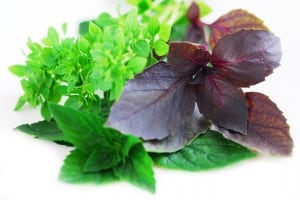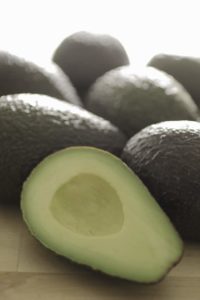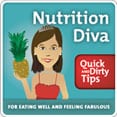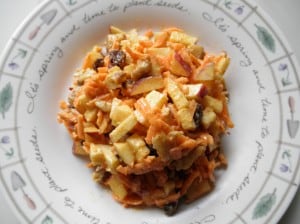 Q. Do dry herbs and spices have the same nutritional benefits as their fresh counterparts or are they only good for flavor?
Q. Do dry herbs and spices have the same nutritional benefits as their fresh counterparts or are they only good for flavor?
A. It depends on which herbs and spices (and which nutritional benefits) you’re talking about!
- Cinnamon, for example, is only consumed in its dried form but powdered cinnamon has been shown to help modulate the rise in blood sugar after meals.
- Ginger can be used either as a fresh root or as a dried powder but either way, has anti-inflammatory benefits. Same with garlic and onions.
- Dried spices like cloves, cinnamon, and black pepper all have high ORAC scores, which indicate antioxidant potential. A teaspoon of these spices is comparable to a serving of blueberries or strawberries.
Clearly, there is still plenty of nutritional benefit to be had from dried spices.


 Q. I’m a 30-year-old man and I’m struggling to gain weight. I exercise 5-7 hours a week. My health is good. I really enjoy vegetables and other healthy foods, but it’s hard to get enough calories without adding soda and dessert to my meal of chicken salad, for example. I know sugar causes a host of bad health effects, but what alternatives are there? How can I get more calories without causing collateral damage?
Q. I’m a 30-year-old man and I’m struggling to gain weight. I exercise 5-7 hours a week. My health is good. I really enjoy vegetables and other healthy foods, but it’s hard to get enough calories without adding soda and dessert to my meal of chicken salad, for example. I know sugar causes a host of bad health effects, but what alternatives are there? How can I get more calories without causing collateral damage?
